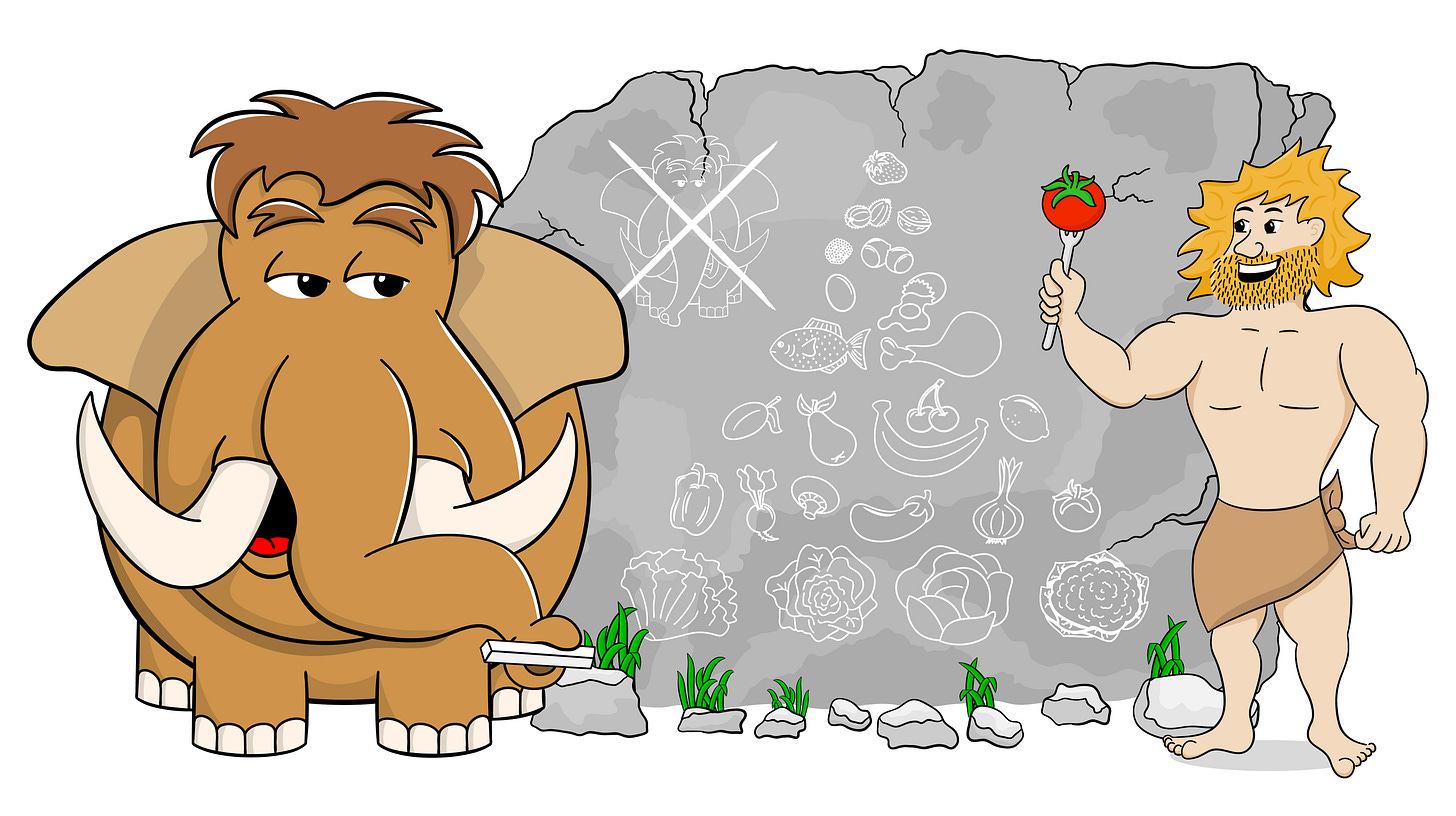For generations, the image of the "caveman" tearing into a hunk of meat has shaped our understanding of early human diets. This image fueled the popular Paleo diet, emphasizing high meat consumption as a way to emulate our ancestors. But recent archaeological discoveries are rewriting the script, revealing a surprising truth: plants, not meat, might have been the staple food of our forbearers.
‘‘Recent archaeological findings challenge the Paleo diet's emphasis on meat, revealing early humans' diets were predominantly plant-based, with evidence from the Peruvian Andes showing up to 80% of their food was plants like wild potatoes. This discovery, highlighting cultural biases in previous research, suggests reevaluating modern diets towards plant-based eating for health and sustainability, potentially reshaping perceptions of veganism.’’
Digging Up a New Narrative
Dr. Randy Haas, an archaeologist at the forefront of this revolution, unearthed evidence in the Peruvian Andes that challenges the "macho caveman" stereotype. His team meticulously analyzed remains from burial sites dating back 9,000-6,500 years, uncovering a surprising fact: up to 80% of the dietary content consisted of plant matter, particularly wild potatoes and root vegetables. This data throws a significant wrench into the Paleo diet's core principles, suggesting a potential misrepresentation of our dietary history.
Beyond the "Caveman" Myth
But why the misconception? Dr. Haas points to cultural bias, with the archaeology field historically dominated by a Western, male perspective that perpetuated the "caveman" myth. His findings highlight the importance of diversifying research perspectives to paint a more nuanced picture of the past. By moving beyond outdated stereotypes and incorporating a wider range of voices, we can gain a more accurate understanding of our ancestors' lives and diets.
Implications for Modern Plates
This "plant-based caveman" revelation has exciting implications for today's dietary discussions. The popularity of the Paleo diet emphasizes emulating our ancestors, but the new evidence suggests we might be looking in the wrong place. It's possible that prioritizing plants aligns more closely with our historical roots, potentially paving the way for a healthier future. Studies have shown that incorporating more plant-based options into our diets can lead to numerous health benefits, including reducing the risk of chronic diseases such as heart disease and diabetes.
Rebranding the Green Plate
Furthermore, this discovery opens doors for a potential rebranding of veganism. Studies show that using traditionally "masculine" labels can make plant-based diets more appealing to men. Aligning veganism with the "true caveman diet" could be a powerful tool for broadening its acceptance. By reframing veganism as a way to connect with our ancestral roots and embrace a more sustainable lifestyle, we can potentially reach a wider audience and encourage healthier dietary choices.
A Call to Action
Dr. Haas's research doesn't just debunk dietary fads; it challenges us to re-evaluate our food choices in a broader context. By understanding our plant-based past, we can potentially move towards a healthier society, reduce reliance on unsustainable meat production, and respect the limits of our planet. Let this be a call to action: reconsider your food sources, move beyond outdated images, and acknowledge the diverse tapestry of human dietary history.
As we move forward, embracing the lessons of our plant-eating ancestors might just pave the way for a healthier and more sustainable future for all!
Sources:
Haas, R., N. Warinner, S. Venkatasubramanian, L. Quinn, K. L. Wittner, and A. R. Klump. "Ubiquitous Plant Food Consumption by South American Pre-Pottery Pastoralists." PLOS ONE 15.1 (2020): e0226420. https://doi.org/10.1371/journal.pone.0226420
Speakman, Lucy. "Paleo Diet Debunked: Early Humans Were Mostly Vegan, Study Finds." The Guardian. January 11, 2020. https://www.theguardian.com/lifeandstyle/2020/jan/11/paleo-diet-carbs-south-africa
Barnard, Neal D., MD, et al. "Plant-Based Diets for Cardiovascular Disease Prevention and Treatment." The American Journal of Clinical Nutrition 89.5 (2009): 1455-1464.
Visit Our Amazon Store!
Notice: As an Amazon Associate, we earn a commission from qualifying purchases that help promote animal rights worldwide!General Resources
Books:
Dominion: The Power of Animals in Nature and in Our Imagination by Matthew Scully
Animal Liberation by Peter Singer
Eating Animals by Jonathan Safran Foer
A Billion Hungry Mouths: Feeding the World Without Consuming the Planet by Colin Tudge
Websites and organizations:
Documentaries:
Articles:
"The Case for Animal Rights" by Tom Regan
‘‘Why We Love Dogs, Eat Pigs, and Wear Cows: An Introduction to Carnism’’ by Melanie Joy
‘‘Animal Rights: The Abolitionist Approach’’ by Gary L. Francione
‘‘Fellow Creatures: Our Obligations to the Other Animals’’ by Christine Korsgaard
Seeds of Compassion: Finding Jesus Christ in a Vegan World by Michael Corthell
Receive a single informative article daily at 12:01 AM by email. Explore my homepage with exciting vegan and plant-based news content and delightful and delicious recipes for additional updates. Stay connected to the vegan world and all it has to offer.
Visit The Vegan Project Global our Facebook page for more vegan outreach and education.
Also, visit our new YouTube channel
The information on this vegan/plant-based blog is for general informational purposes only. It is not intended as legal, medical, or professional advice. Readers should consult with appropriate professionals for specific advice tailored to their situation. The blog owner is not responsible for any reliance on the information herein.






Balance in everything.